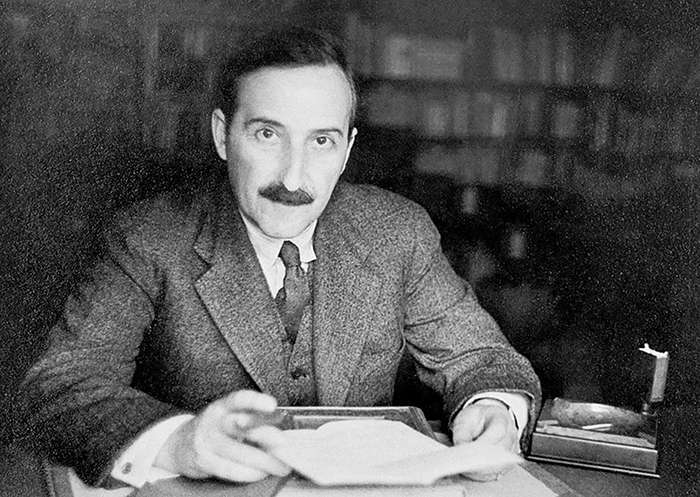The author who committed suicide as a result of his depression: Who is Stefan Zweig?
Zweig is famous for saying "Even an unjust peace is better than the most just war". These thoughts declared him a traitor for some and a savior for others. He, on the other hand, did not listen to all that was said and drew his own path. Let's follow the path of life together.

Zweig was born in Vienna, the son of Moritz Zweig (1845–1926), a wealthy Jewish textile manufacturer, and Ida Brettauer (1854–1938), the daughter of a Jewish banker. Zweig studied philosophy at the University of Vienna, where he received his doctorate in 1904 with a thesis on "The Philosophy of Hippolyte Taine."
Stefan Zweig (28 November 1881 – 22 February 1942) was an Austrian writer. At the height of his literary career, in the 1920s and 1930s, he was one of the most widely translated and popular writers in the world.
Stefan Zweig was born on 28 November 1881 in Vienna. He grew up in a wealthy family and started his education life by taking important lessons from his childhood. Speaking languages such as English, Latin, Greek, and French, Zweig became interested in literature and poetry.
When he reaches his university years, he gives more importance to writing and writes on the culture pages of the Neue Freie Presse newspaper. Here, he makes friends who live in the reputable literature circle, and since he himself is studying philosophy, he constantly organizes long literary conversations with his friends.
During this period, Zweig found his own expression technique, wrote for the newspaper, and started to write both translated novels and his own poems.
Zweig in the War Years
When the First World War began, he joined the army to do his national service, where he worked for three years in the war archives, and says the following about his duty: "Let me explain that it is not a task to be bragged about, but such a job was more suitable for me than piercing the intestines of a Russian peasant with a bayonet." By opening a different perspective, it aims to show people the inner face of war gradually.
But over time, after what he sees, he realizes the meaninglessness of war. He opens his eyes, sees blood, brutality, and children, and thus begins his greatest awakening.
He tries to keep people away from war by saying, "All dictators who prepare for war always talk about peace until they complete their preparations." He tries to show people the truth, to explain the sadness they will get.
He wrote many articles with his literary circle. After summing up his experiences at the front in "Jeremiah", he was exempted from military service and expelled because of what he wrote.
Leaving the City and Connecting to Writing
During this period, he moved to Zurich and declared in the newspapers that he did not support the war, exhibited humanistic behavior, and was impartial. After staying here for a while, he returns to his country after the end of the war and makes his first marriage here.
Continuing to write, Zweig achieved a well-known reputation in the literary world. He is invited to many events. There are many people who don't like them because of their anti-war views as well as those who love them with what they write. His writings are burned in the streets, smear campaigns are organized about him and other writers.
After the start of Hitler's influence, Zweig is blacklisted for capture and exile and had to leave his country.
Moving to London from there, Zweig and his second wife, who took British citizenship, could not be comfortable there because of Hitler's advance to the west and settled in America, Argentina, Paraguay, and finally Brazil.
Depression and Suicide
He decides to make a way for himself to leave this world because of the poets who always live in a depressive mood and depression.
Hitler's killing of people and their hopes thinks that war will only bring millions of deaths, and he sticks to this idea. Having set his mind to commit suicide, Zweig took three sips of the poison called "veronal" and handed it to his second wife, Lotte, saying, "If you want to come to me, you can do it anytime." His wife drinks the remaining poison in the bottle. They are found dead in their homes, hugging each other.
